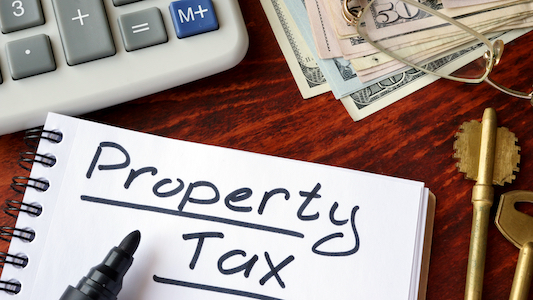As a property appraiser, assessor, or collector, you have completed education to obtain professional certification under Texas law. When you receive notice that someone has filed a complaint against you, you may be overwhelmed and unsure where to turn first. Even if the complaint is unfounded, you must take it seriously to protect your career and livelihood. Contacting an experienced property tax professional license defense lawyer always should be your first step when you receive notice of a complaint against you.
Property Tax Professionals and the Role of the TDLR
Property tax professionals can obtain certification through the Texas Department of Licensing and Registration (TDLR) as appraisers, assessors, or collectors. There also are various classes within these categories that individuals can complete based on educational hours and months of experience. TDLR maintains the certification for these professionals and handles any complaints against these individuals.
The TDLR enforces violations of the Property Taxation Professional Certification Act and the agency rules applicable to these professionals. When TDLR receives a complaint, it investigates whether a violation over which it has jurisdiction has occurred. Under Tex. Occ. Code § 1151.204, TDLR may dismiss a complaint without a hearing if:
- The complaint challenges:
- The imposition of or failure to waive penalties or interest under applicable sections of the Tax Code,
- The appraised value of a property,
- The appraisal methodology,
- The grant or denial of an exemption from taxation, or
- Any matter for which Title 1, Tax Code, specifies a remedy, including an action that a property owner is entitled to protest before an appraisal review board under the Tax Code, and
- The subject matter of the complaint has not been finally resolved in the complainant’s favor by an appraisal review board, a governing body, an arbitrator, a court, or the State Office of Administrative Hearings under Section 2003.901, Government Code
Violations for Which TDLR Issues Sanctions
TDLR divides sanctionable violations by property tax professionals into Classes A through D, depending on severity. Class A violations are the least serious and carry the least severe sanctions, where Class D violations are the most serious and carry the most severe sanctions. First-time violations also result in less severe sanctions than second or third-time violations.
Class A Violations
Class A violations include failure to have an identification card in the registrant’s possession while on duty, failure to maintain a copy of each continuing education certificate of completion for two years, and failure to notify TDLR of a change of employment within 30 days. Sanctions for Class A violations range as follows:
- 1st violation: $100 – $500
- 2nd violation: $300 – $500
- 3rd violation: $1,000 to $1,500
Class B Violations
Class B violations include a long list of more significant violations, including:
- Failure of any required property tax professional to register with TDLR
- Performing work requiring registration during an unregistered period
- Failure to respond to TDLR investigative request or provide a complete written answer to a complaint
- Failure to disclose in writing to the appraisal district or taxing entity any outside employment
- Conducting the registrant’s professional duties in a manner that one could reasonably expect to create the appearance of impropriety
Sanctions for Class B violations range as follows:
- 1st violation: $300 – $500
- 2nd violation: $1,000 – $1,750 and/or up to a 1-year probated suspension
- 3rd violation: $1,500 to $2,250 and/or up to a 1-year full suspension up to revocation
Class C Violations
Class C violations also include a long list of violations, including:
- Engagement in a practice that constitutes an act of improper influence, conflict of interest, unfair treatment, discrimination, abuse of powers, or misuse of titles
- Knowingly testifying falsely or withholding information in an investigation or proceeding, or knowingly influencing another to do so
- Engaging in an activity or employment outside of the appraisal office or tax office which adversely affects the registrant’s performance of or impartiality in the execution of the registrant’s official duties
- Failing to be guided by the principle that property taxation should be fair and uniform and failed to apply all laws, rules, methods, and procedures uniformly to all taxpayers
- Engaging in an official act that is dishonest, misleading, fraudulent, deceptive, or in violation of law
Sanctions for Class C violations range as follows:
- 1st violation: $1,250 – $1,750 and/or 1-year probated suspension up to 1-year full suspension
- 2nd violation: $1,750 – $2,500 plus 2-year probated suspension up to revocation
- 3rd violation: $3,000 to $3,500 plus 1-year full suspension up to revocation
Class D Violations
Class D violations are the most severe violations that have the potential for the most severe penalties, including revocation of certification. These violations include:
- Failing to comply with a previous order of Commission/Executive Director
- Obtaining or attempting to obtain a registration by fraud or false representation
- Submitting a required document, as part of the initial or renewal application packet, that had been falsified
- Using or providing unauthorized assistance in connection with an examination
- Failed to pay the Department for a dishonored check
- Failure of an appraiser, assessor, or assessor/collector registrant to be certified in their field within five years of registration
- Failure of a collector registrant to be certified in their field within three years of registration
- Using an official position to influence the outcome of a personal tax matter
- Accepting or soliciting a benefit in return for favorable treatment
Sanctions for Class D violations range as follows:
- 1st violation: $3,000 up to $5,000 and/or revocation
- 2nd violation: $3,000 up to $5,000 and/or revocation
- 3rd violation: $3,000 up to $5,000 and/or revocation
Defend Yourself Against Disciplinary Proceedings Involving Your Property Tax License
Don’t allow an isolated complaint to wreak havoc on your career. Losing your ability to support yourself will only worsen your situation. If you are facing the loss or suspension of your license for any reason, we can help you take the steps necessary to challenge your disciplinary proceedings. Contact a property tax license defense lawyer at Bertolino LLP, for advice today. Make an appointment by calling (512) 515-9518 or contact us online to see how we can help.
Call or text (512) 476-5757 or complete a Case Evaluation form






